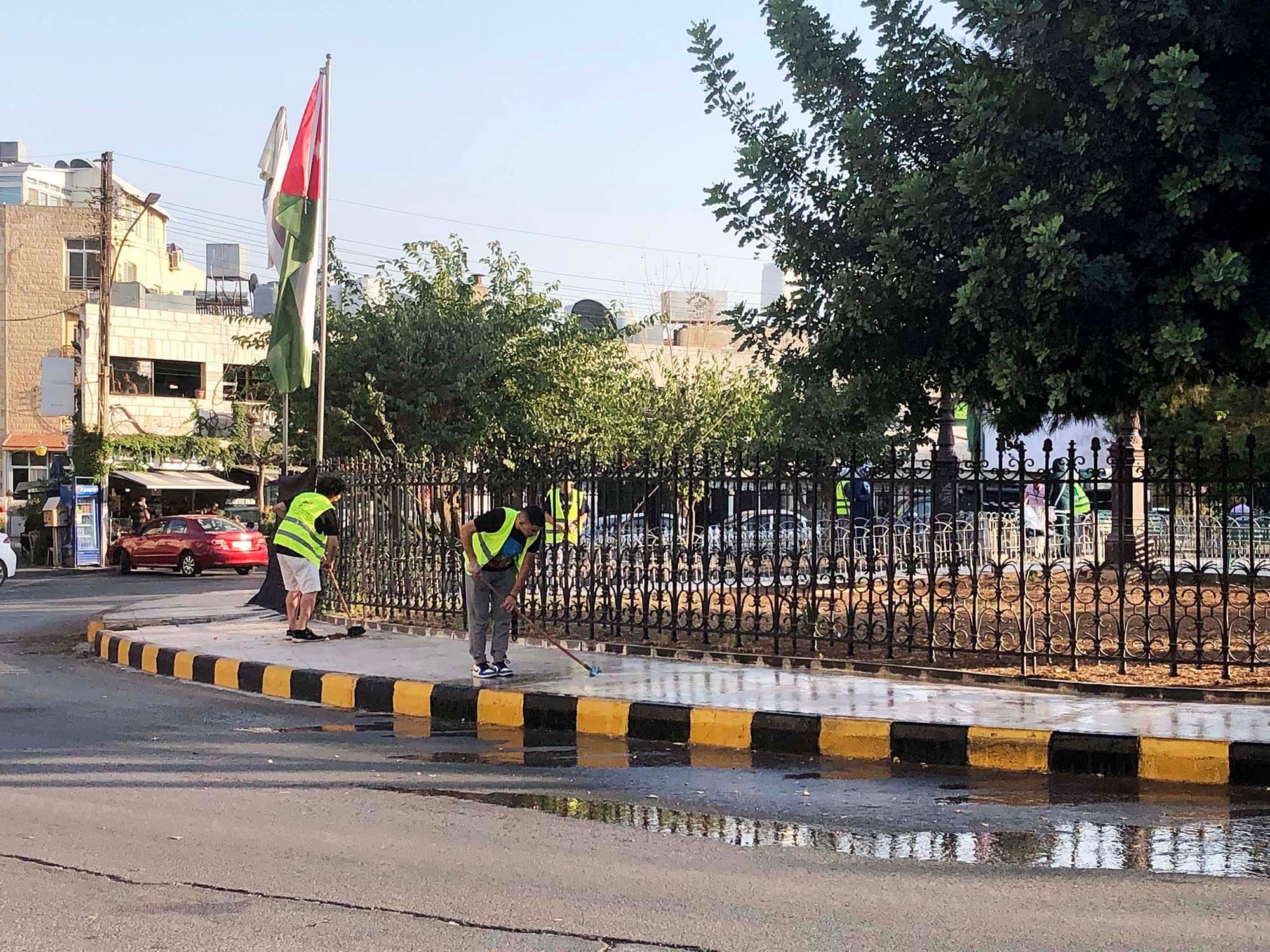Curbing incidences of wastage to ensure Jordan’s water security

Jordanians receive water that is less than what the United Nations mandates, due to various factors. Despite this scarcity and efforts by a majority of the population to conserve water, there remain incidences of water wastage. Jemima Oakey explores this issue and potential ways to ensure Jordan’s water security.
Jordan’s difficult water situation is borne out of a number of factors – including competition for Jordan River’s transboundary waters with riparian neighbours Israel and Syria, population influxes from waves of refugees and historic mismanagement of water networks.
Jordanians receive on average 61 cubic metres per person per year, far below the 500 cubic metre threshold that UN specifies as absolute water scarcity. Households receive water tank refills once a week, fortnightly during summer, and must budget this water accordingly.
The Ministry for Water and Irrigation has recently raised significant international funds to reduce losses in the water network from 45% to 25% by 2025.
The ministry is also developing the region’s largest desalination plant at the southern city of Aqaba which will generate approximately 300 million cubic metres of potable water per year once complete. Additionally it has negotiated a water–energy trade for 200 million cubic metres of water with Israel.

Cases of prevailing wastage
Despite significant governmental efforts to secure Jordan’s water future in the face of climate change and a rising population, and despite many households practicing extensive conservation methods, water wastage remains a problem.
In a water scarce country such as Jordan, some households’ practice of cleaning stairs by hosing them down with water is a significant waste of water, especially when other households take great steps to conserve this precious resource through, for example, carefully regulating the frequency and duration of showers, and frequency of use of the washing machine.
Considering that Jordanians receive only an average of 36 hours of piped water supply a week, wastage of any kind can be significant. A leak or incident of misuse could risk a household water tank running empty before the next scheduled refill, with the only solution being to purchase an extremely costly emergency refill.
Yet when driving along the streets one can track the path of water lorries as the hoses sometimes leak and leave water trails on the road. Leaking hoses and water lorries can also result in considerable water loss when refilling tanks, as water spills onto the street.
Inefficient water usage also exists in some businesses and in the nation’s agricultural sector. Nearly 25% of agricultural water usage is used for furrow basin irrigation, far less efficient and prone to rapid evaporation rates than water-efficient drip irrigation techniques.
Some commercial establishments can be seen washing their pavements and patios with a hose or jet spray. And in wealthier neighbourhoods, green lawns, healthy flower beds and private swimming pools often exist, where the financial cost of water is negligible.



Left: tanker delivering water in Amman, Jordan. Center: a sidewalk being hosed with water. Right: a leaking water storage tank on a rooftop. Photos: Jemima Oakey
Towards better water management
Climate change and population growth will increase the strain on Jordan’s water resources, with Jordanians projected to receive only 35 cubic metres of water per year by 2040. Improving water usage efficiency wherever possible can ensure a more water-secure future for Jordan.
One option perhaps is to provide financial assistance for households to purchase water saving appliances such as dishwashers which would greatly alleviate economic and water conservation strains on families. Handwashing dishes remains a common practice as purchasing a dishwasher is largely cost prohibitive for many. Handwashing dishes uses 9 litres per minute in contrast with a fully loaded dishwasher’s 14 litres per load. This would greatly assist households financially whilst allowing for their water tanks’ supplies to last longer.
For tackling large incidences of water misuse, climate commentators contend that the threat of government regulations are not stringent enough to deter some households from syphoning fresh water to enjoy luxuries such as swimming pools. Allowing for better regulation of water resources and enforcement of rules against those misusing it would help foster more conservative approaches in neighbourhoods.
And in the agricultural sector, more effective irrigation techniques could be adopted. These are some of the steps that can ensure that Jordan’s hard-won water gains for water security are used effectively and efficiently, and protect consumers' water needs.
This is a revised and updated version of the story that was published on 4 July, 2023.






Member discussion